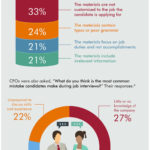By PAN PYLAS
Associated Press
LONDON (AP) _ The European Central Bank is coming under increasing pressure to do more to stem the strength of the euro currency, which is hurting exporters and keeping a lid on the region’s recovery from recession.
ECB President Mario Draghi is likely to face questions on what can be done to reduce the value of the euro when he faces lawmakers at the European Parliament this week.
At around $1.36, the euro has come down from its 2014 high of just below the $1.40 mark in May. Even so, the currency remains well above its historic average. That’s a problem for the region’s exporters as they try to drum up business in the growing global economy. Carmakers from Germany to Greek yoghurt makers find it more difficult to sell their wares when the euro is so strong.
With the economy barely growing and not creating many jobs, politicians are piling on the pressure on the central bank.
On Thursday, French Economy Minister Arnaud Montebourg said the ECB should do more to weaken the euro to boost growth, which would help bring down the sky-high unemployment rate, particularly among the young. The ECB frowns upon such interventions by politicians as it does not want investors to doubt that it is able to set its policies independently of government pressure.
If needed, the ECB could further loosen its monetary policy through interest rate cuts or launch a monetary stimulus similar to those undertaken by the U.S. Federal Reserve and the Bank of England. Those programs involve injecting new money into the economy by buying large amounts of bonds and other financial assets.
Few economists think Draghi and the ECB want to go down that route, partly because of technical problems such as how to buy assets _ and which ones _ across a currency bloc comprising 18 countries. However, Draghi has said such a program, called quantitative easing, or QE, is within the bank’s mandate and could be used if needed.
And therein lie potential problems for Draghi and the ECB, according to Gary Jenkins, chief credit strategist at LNG Capital.
Having been told that QE is a possibility, Europe’s politicians may get increasingly exercised by the failure of the ECB to use such a program to help the economy, especially if growth remains anemic and inflation, at 0.5 percent, stays below the ECB’s target of just below 2 percent.
“Unless growth returns, I expect that European politicians will start to put him under more pressure to implement unconventional policy measures such as QE,” said Jenkins. “These wolves will huff and puff until they blow the ECB’s defenses down.”
Draghi is also likely to be grilled about the health of Europe’s financial system days after concern over a Portuguese bank caused market gyrations.
The ECB has certainly been active over the past few months to heal the economy and the banks. It is reviewing the finances of Europe’s largest financial groups and given them cheap loans to help get credit to businesses. It has reduced its benchmark interest rate to a record low of 0.15 percent. It also set a negative rate for the deposits bank keep at the central bank in the hope that pushes them to lend more to businesses and households instead.
It may seem counter-intuitive that the euro has been strong, particularly against the dollar, over the past few years, at a time the eurozone was embroiled in a debt crisis that threatened the single currency’s very future and the Fed pumped billions of dollars every month into the U.S. economy.
Its recent resilience has been partly a by-product of Draghi’s comment nearly two years ago that the ECB would do “whatever it takes” to save the euro. Since then, European markets have improved markedly, with government borrowing rates in indebted countries like Greece and Spain falling sharply.
However, the high value of the euro can work against the ECB’s ambitions of shoring up the recovery and getting inflation back toward the target. It can stifle growth by hurting exports and rein in inflation by reducing the price of imports.
Without actually saying what he considers to be fair value for the euro, Draghi has made some forays into the debate. The euro, he insists, is “not a policy target” but has become “very important for our outlook on price stability.”
For now, Draghi is expected to resist the pressure and continue down the same line.
“For the time being it seems likely that Draghi will stick with attempting to talk the euro lower,” said Jane Foley, senior currency strategist at Rabobank International.









